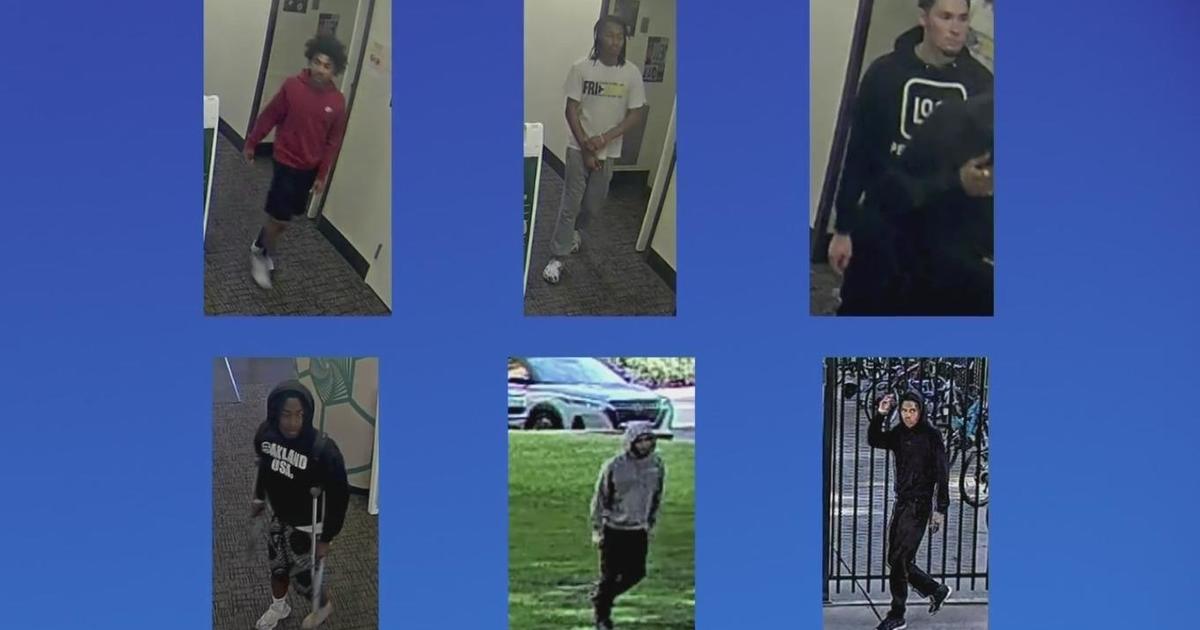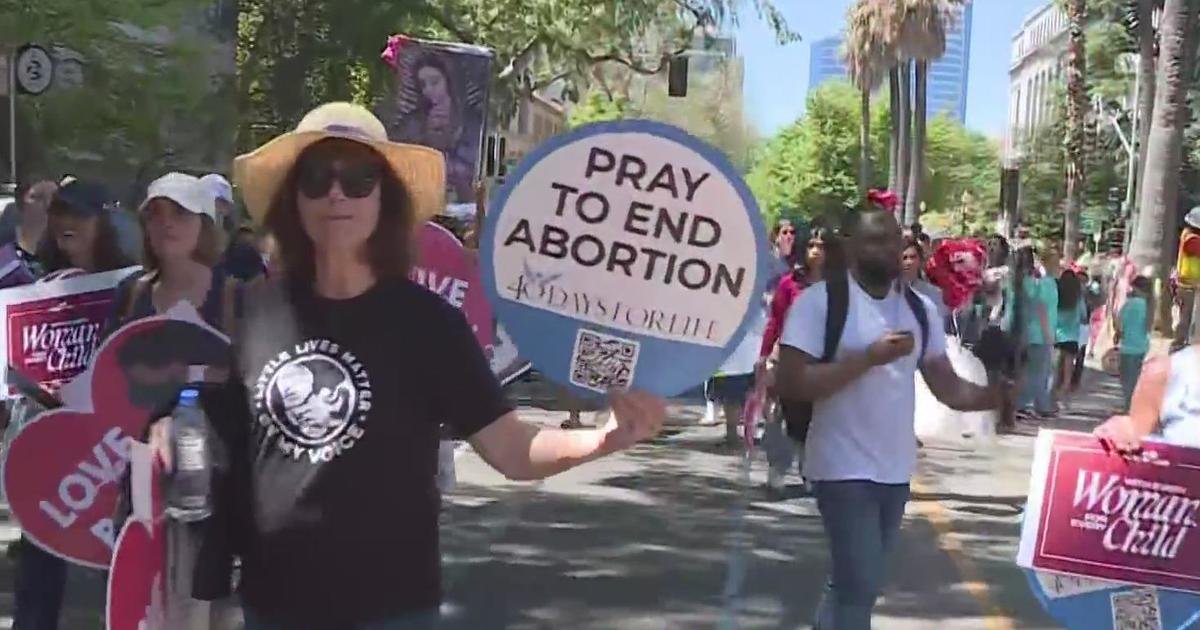Sacramento Police Outline New Body Camera Policy As It Prepares To Release More Video
SACRAMENTO (CBS13) — The chanting continued Tuesday as protests over the shooting of Stephon Clark in Sacramento entered their fourth week.
"All of us are out here day after day, week after week but we're not gonna stop until we get some charges against the police," said protester Kalasyah Young.
A few dozen demonstrators held signs, barbecued, and made their voices heard outside the District Attorney's office.
"Were waiting for her to come talk to us and we've been waiting for a couple weeks. We're gonna stay out here till we get what we need," said Black Lives Matter founder Tanya Faison.
Stephon's brother Stevante Clark was among the crowd
"I wanted to support the people, and let them know I'm here with them," he said.
At one point demonstrators sat blocking the back parking lot exits, yelling at employees leaving the building "to do their job."
And from the DA's office to city hall, the protests ended as people went inside to listen to Chief Hahn's presentation on police practices, policies, and protocols. Some chairs were set up outside council chambers where a small group watched the meeting.
"The dialogue is great, but we've been talking for years, and it's time to actually see changes. What I want to see are repercussions," said Faison.
Sacramento Police announced Tuesday that they issued their first written policy on when officers can deactivate or mute their body cameras. A spokesperson for the department said they had been working on the policy, but expedited the process in light Clark's shooting that raised questions as to why officers had hit the mute button that night.
"If they're going to mute, now it's spelled out when they can," said Sgt. Vance Chandler.
According to the new directive released by Sacramento Police:
Employees shall not deactivate or mute the body camera at any time unless:
- There is a necessity to conserve battery life, an employee on a perimeter or assigned to a static post where he or she is not in contact with citizens or actively part of the investigation may deactivate the BWC to conserve battery life. The BWC should be reactivated when these circumstances no longer apply.
- Discussing issues or concerns with a doctor, nurse, or paramedic.
- A witness or victim refuses to provide a statement if recorded and the encounter is non-confrontational.
- Recording is inappropriate because of the victim or witness's physical condition, emotional state, age, location or other sensitive circumstances (e.g., a victim of rape, incest, inside a hospital or other form of sexual assault).
- Extraordinary circumstances exist, with supervisor approval.
- In all instances, employees shall audibly record the reason for deactivation or muting on the BWC.
The policy does not include what the repercussions would be if an officer violated this protocol.
And some say this directive is coming months too late:
"Six months ago we told them. We said that it was really problematic that they were allowed to turn the cameras on and off, it's really sad it takes the death of Stephon to bring that home today," said Richard Owen, Co-Chair of LEAD (Law Enforcement Accountability Directive).
Sgt Chandler says additional body cam videos will be released to the public by April 17.



